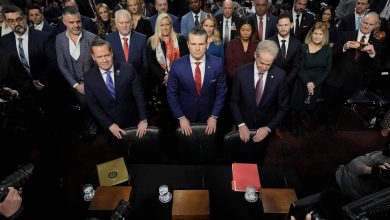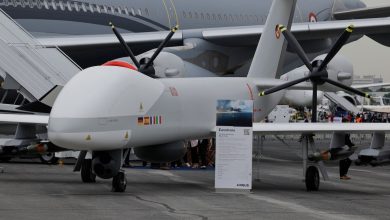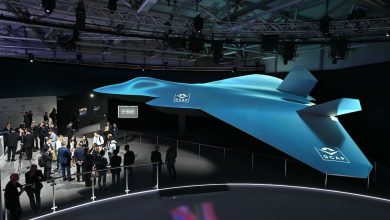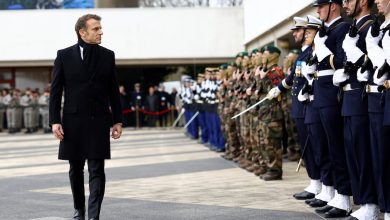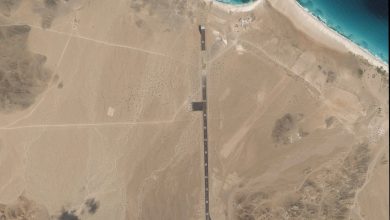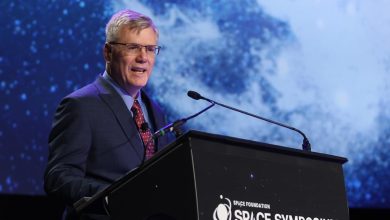Pentagon chief Austin embarks on his last Asia visit amid uncertainty
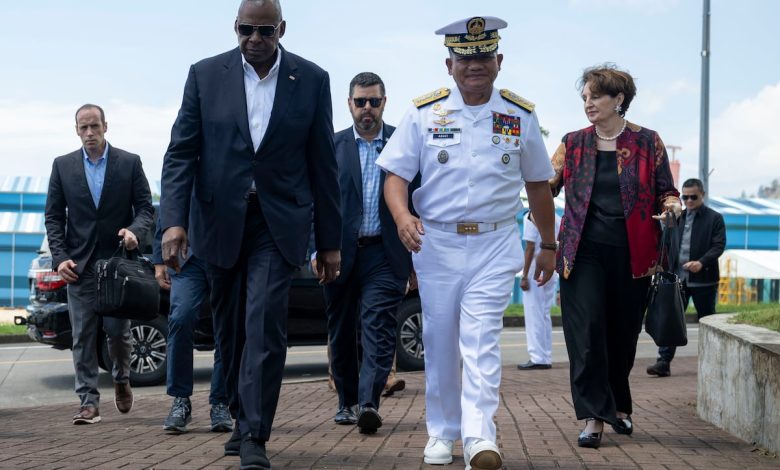
Secretary of Defense Lloyd Austin will travel to the Indo-Pacific Friday, his 12th and final trip to the region America has long said is its top priority and home to its main rival: China.
While there, he will visit a bevy of U.S. allies and meet with colleagues on what amounts to a farewell tour. In his time as secretary, Austin has led a renaissance for American forces around the region. The Pentagon is now partnering with more countries and working closer with its longtime allies.
That list includes many of the countries Austin will visit in the coming week: in particular the Philippines and Australia, where he will join a counterpart from Japan. He will also attend a meeting of regional defense ministers in Laos and on the way back become the first U.S. secretary of defense to visit Fiji, where American officials are negotiating a deal to allow military access.
Through this larger and more tight-knit group of partners, the U.S. hopes to build and maintain weapons closer to China’s shores, while also spreading out its forces in the region, thus making them harder to target.
“Secretary Austin has done things that you look at and say, five years ago, that would have been unimaginable,” a senior defense official, speaking on the condition of anonymity, told reporters before the trip.
Despite the celebration, Austin’s arrival will also come at a moment of uncertainty in what he has helped build. Donald Trump’s reelection as U.S. president last week, along with the outcome of Japan’s general election the month before, marks the first round of major political change that could disrupt countries in the region unified by their concerns over China, which in recent years has grown stronger and more aggressive toward its neighbors.
Pentagon officials have long maintained that their view of China, and the need to compete with it, has bipartisan commitment. But Trump’s nomination of Pete Hegseth, a veteran and Fox News host without Washington experience, is a reminder that the incoming president can stray from the political mainstream.
“I don’t think anybody’s going to object to these posture changes. Now there may be discussions about the level of burden sharing that’s ongoing in those relationships,” said Zack Cooper, who studies American alliances in Asia at the American Enterprise Institute.
In particular, Trump has questioned America’s commitment to Taiwan, a self-governing island that China considers part of its rightful territory. U.S. policy is deliberately ambiguous on whether it would defend Taiwan during an invasion, leaving the choice to the president.
Taipei is on track to spend around 2.6% of its GDP on defense and has billions of dollars worth of American arms on order, but Trump and some of his advisers have said its budget needs to rise.
Noah Robertson is the Pentagon reporter at Defense News. He previously covered national security for the Christian Science Monitor. He holds a bachelor’s degree in English and government from the College of William & Mary in his hometown of Williamsburg, Virginia.
Read the full article here

